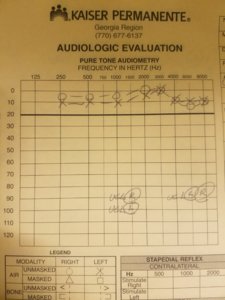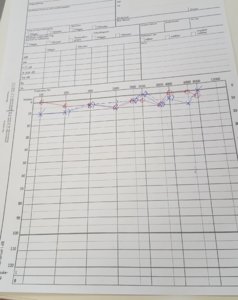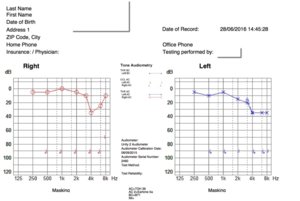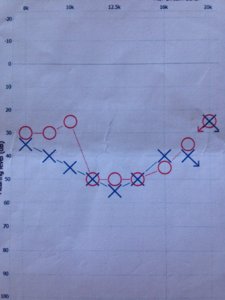Tinnitus is such a complex condition
@MikeGreen. It has so many possible causes - which may also entangle with one another - that it makes it extremely hard to pin down a definitive cause. I believe there are various mechanisms at play and no two people experience the same tinnitus. This is one of the reasons why it's hard to find a cure that suits us all.
Another problem is that audiology doesn't seem to have really advanced in the past few decades. It is still very much centered around fitting hearing aids. Why only test up to 8kzh? Because it is up to this frequency that human speech is heard, and is also the upper threshold of most hearing aids (although some now do go a bit higher). They don't test higher because it is seen as unnecesarry. But, in my opinion, by not testing higher we are limiting our ability to diagnose and understand where some of the damage to our hearing may lie.
It's all well and good saying "well we don't really use those high frequencies, so why bother testing them?" Try telling that to your brain when it's trying to find those damaged frequencies. On some level I find it absurd that no effort is taken to test our entire range of hearing.
The damage can lie in the cochlear, the auditory nerve or the brain; or it can be a combination of all three. One of the most overlooked tests for tinnitus cases is an ABR. I don't think many of us are offered this because it doesn't lead to a treatment, but I still believe we should be taking proactive steps in trying to understand what's causing our condition. An ABR test may help shed some light on whether we have hidden hearing loss due to nerve damage.
It seems people with tinnitus have a weaker wave I compared to normal people, yet wave V seems to be unaffected which would explain why we have normal audiograms. One of the best theories is that our brain turns up the gain to compensate which raises the background noise, hence tinnitus. It's just like the background noise you get on an amp or hifi when you turn it up. There is also the possibility of a faulty 'gating' switch in our brain which should filter out the sound but doesn't.
There's plenty of studies on tinnitus and ABR tests (hidden hearing loss), one of the best explained I couldn't find but I'll post some other links at the bottom of this post. There's plenty of other info out there if you google it:
http://emedicine.medscape.com/article/836277-overview#a3
http://www.crsamplifon.com/document...pptx.pdf/887c77fb-e545-456a-aa0c-cfe21a7c6088
 Member
Member


 and I probably damage more my left ears ...I have now since june 2016, another T which is louder and the hearing aids, reduce the T by 20 % max instead of 99% as before
and I probably damage more my left ears ...I have now since june 2016, another T which is louder and the hearing aids, reduce the T by 20 % max instead of 99% as before